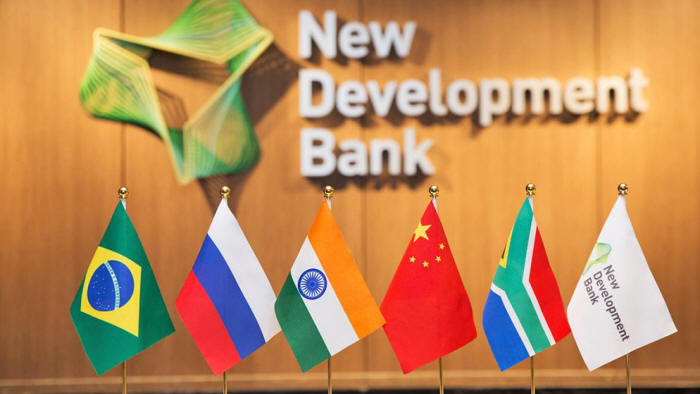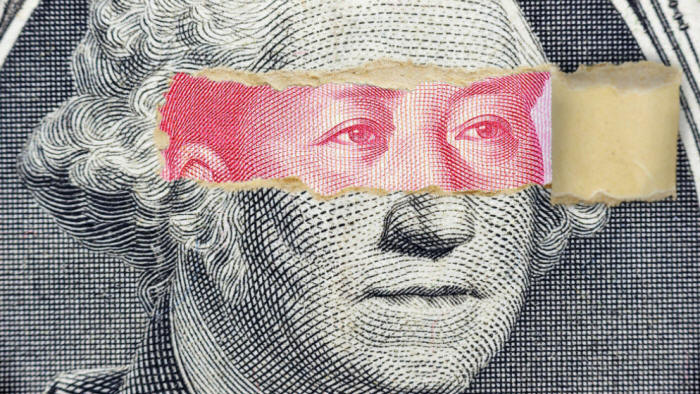|
March 31 2023
The US dollar's hegemony in international markets continues to deteriorate partly due to the Global South's refusal to enforce
western
sanctions against Russia...
...is working on developing a "new currency" that will be presented at the organization's upcoming summit in Durban.
Babakov also stated that a single currency could likely emerge within BRICS, and this would be pegged not just to the value of gold but also to,
BRICS member states account for more than 40 percent of the global population and around a quarter of the global GDP.
In recent months, the group has been positioning itself as the Global South's alternative to the G7 group of nations.
Several nations in West Asia and North Africa have expressed interest in joining the bloc, including Saudi Arabia and Algeria. Last year, Iran officially applied to join BRICS.
Earlier this month, South African Foreign Minister Naledi Pandor revealed that global interest in BRICS is "huge," adding that she had 12 letters from interested countries on her desk, including,
The news of a possible BRICS currency comes as a growing number of nations across the world are moving away from conducting trade in US dollars as a result of Washington's policy of economic coercion.
This week alone, the ASEAN group of nations discussed dropping the,
...from financial transactions and instead moving to settlements in local currencies.
Similarly, Brazil - the largest economy in Latin America - reached an agreement with China to enable import and export transactions between both nations to take place without using the US dollar.
Former Goldman Sachs chief economist Jim O'Neill this month called on BRICS to expand and challenge the greenback's dominance, highlighting that Washington's economic hegemony destabilizes other nations' monetary policies.
by News Desk
April 19
2023
The latest IMF figures reveal that BRICS nations will contribute 32.1 percent to global growth,
compared to the
G7's 29.9 percent...
According to the Bloomberg analysis, the G7 and BRICS nations each contributed equally to global economic growth in 2020. The western-led bloc's performance, however, has since declined.
The G7 is expected to make up just 27.8 percent of the global economy by 2028, while BRICS will make up 35 percent.
The report comes as BRICS
has been receiving more and more interest from other states wanting
to join.
Other countries such as,
...have acquired equity in the BRICS' New Development Bank.
The US Dollar has become more unreliable for dollarized economies due to rising interest rates regulated by the US Federal Reserve (FED) and the bank's weaponization of the dollar through financial sanctions.
In addition,
In January, Lavrov said that,
Referring to the current US dollar-dominated international financial system, which exposes participant countries to the threat of economic sanctions imposed by Washington, Lavrov claimed that,
On 13 April, Brazil's President Ignacio Lula da Silva called on the member states of BRICS and countries that seek to become part of it to replace the dollar in foreign trade.
|



